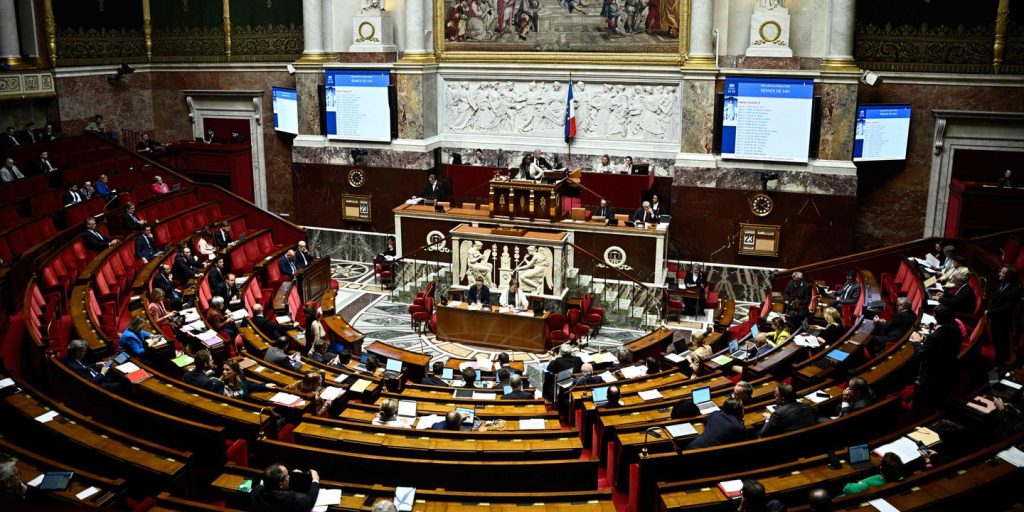In commission, members of parliament continue to rewrite the Social Security budget. They have made significant changes to the proposed budget for 2025, including unraveling increases in corporate contributions and implementing new taxes on large fortunes, super profits, added sugar, and alcohol. The commission unanimously decided to eliminate a measure that would have applied two social contributions (CSG and CRDS) to apprentices, estimated to save 360 million euros. Additionally, they voted to maintain an exemption for start-ups and another niche benefiting maritime shipowners. This has increased the overall cost of the budget after a key article of the financing law, aimed at restructuring employer social security contributions and generating four to five billion euros, was rejected.
The rejection of the article was a significant blow to the government, especially as members of the right and Macronist factions, along with support from the National Rally, were behind it. However, the General Rapporteur Yannick Neuder indicated that discussions were underway with the government for a rewrite of the contested article. Subsequently, the left gained ground in the evening by passing various amendments that could bring in billions in new revenues for Social Security. These measures aim to limit the drastic savings planned by the government and potentially repeal the pension reform.
Among the amendments adopted by the left was a solidarity contribution on the fortune of French billionaires set at 2%, estimated to generate twelve billion euros for the pension system. The commission also approved the creation of a tax on “super profits” of companies with a turnover exceeding 750,000 euros, a tax on dividends, and an increase in the taxation of high pensions financed by companies. In response to Sanofi’s sale of its non-prescription drug subsidiary to an American fund, the deputies approved an amendment to strengthen state powers in terms of health sovereignty, requiring prior authorization for such transfers.
The commission also introduced new taxes to prevent chronic diseases and addictions, including taxes on flavored and sugary beers, high alcohol beers, a social security contribution on all alcohols, and a tax linked to the sugar content of processed food products. They also made it mandatory to display the “nutriscore” on advertising materials for food products. The purpose of these taxes is to encourage manufacturers to reduce sugar content in their products. Despite rejecting an amendment to raise tobacco taxes and increase the price of cigarettes to 16 euros by 2027, debates ensued over indexing alcohol taxation to inflation, which was ultimately rejected due to concerns about the impact on the wine industry.
The discussions in the commission highlighted differing perspectives on public health measures, particularly regarding the taxation of alcohol and tobacco products. While some argued for stricter measures to combat the health risks associated with these products, others raised concerns about the potential economic impact on industries such as viticulture. Overall, the amendments and decisions made by the commission reflect a balancing act between generating revenue for Social Security, promoting public health, and considering the economic implications for various sectors.


